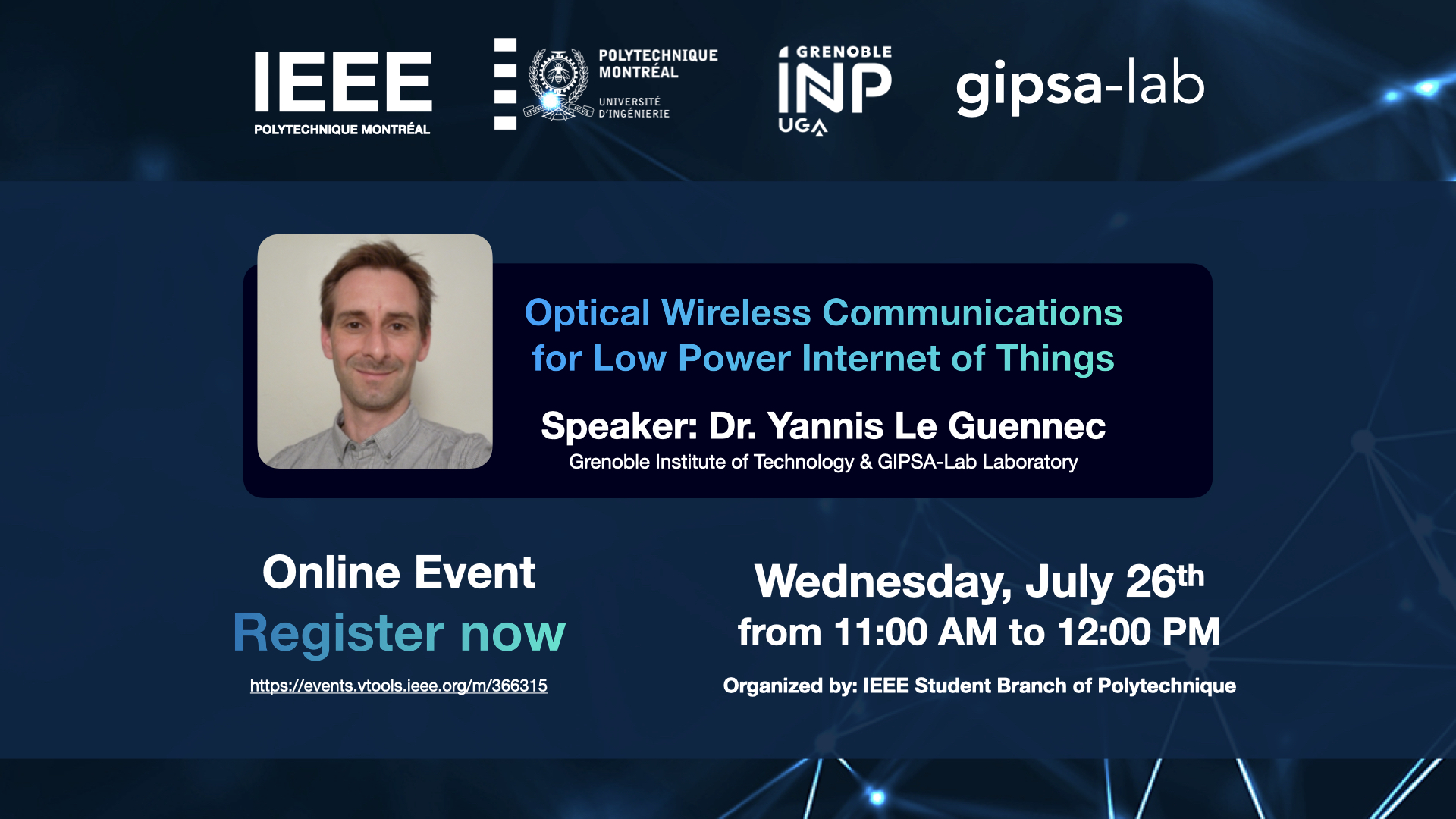Optical Wireless Communications for Low Power Internet of Things

Title: Optical Wireless Communications for Low Power Internet of Things
Context: Optical wireless communication (OWC) is touted as a complementary technology to mitigate the scarcity issue of the RF spectrum. OWC relies on massively deployed low power consumption light emitted diodes (LED) to realise secure wireless communications in the optical domain. However, to implement low power OWC systems for IoT applications, it is necessary to investigate on energy efficient modulation schemes. For a typical OWC system, using intensity modulation and direct detection (IM-DD), the modulation signal should be unipolar and positive. Extensive research has been carried out on high data rate IoT applications, which are based on spectrally efficient linear modulation schemes, such as pulse-amplitude modulation (PAM), optical-orthogonal frequency-division multiplexing (O-OFDM), etc. Only very few studies have been carried on low power OWC technologies dedicated to low power/low data-rate IoT. To address this challenge, non-linear modulations such as frequency shift keying (FSK) have raised a substantial interest for OWC applications. As original FSK modulation is not compatible with the IM-DD OWC system due to its bipolar nature, two variants of FSK-based modulations (i.e., direct current (DC)-FSK and unipolar (U)-FSK) have been introduced recently which are compatible with IM-DD OWC systems.
Abstract: In this presentation, a new modulation technique M-ary Asymmetrically Clipped (AC)-FSK which is compatible with IM-DD OWC systems to address the challenge of energy efficient modulation scheme for low data-rate OWC is proposed. The spectral analysis of M-ary AC-FSK waveforms allows us to build a low complexity frequency-domain (FD) harmonic receiver which has almost the same bit error rate (BER) performance as the optimal receiver but with a drastic reduction of receiver complexity. Moreover, a new modulation approach (called AC-FPSK) is proposed for OWC systems that is based on the amalgamation of the proposed M-ary AC-FSK and phase-shift keying (PSK). AC-FPSK further improves the energy efficiency versus spectral efficiency trade-off as compared to M-ary AC-FSK. Finally, an experimental demonstration, based on the software defined radio (SDR) test bench with OWC prototype is presented for the proposed M-ary AC-FSK. Experimental results are compliant with the simulation results and highlight the interest of the proposed modulation schemes for optical wireless communications.
Speaker: Yannis Le Guennec
Organizer: IEEE Student Branch Of Polytechnique Montréal
Thomas Micallef, Poly-Grames Research Center, Polytechnique Montréal
Date and Time
Location
Hosts
Registration
-
 Add Event to Calendar
Add Event to Calendar
Loading virtual attendance info...
Speakers
 Yannis Le Guennec of GIPSA-lab Université Grenoble Alpes
Yannis Le Guennec of GIPSA-lab Université Grenoble Alpes
Biography:
Associate professor at Grenoble INP-Phelma and researcher at Gipsa-Lab, CNRS, Grenoble-INP, 38400 Saint-Martin d’Hères, France
Address:Grenoble, France

